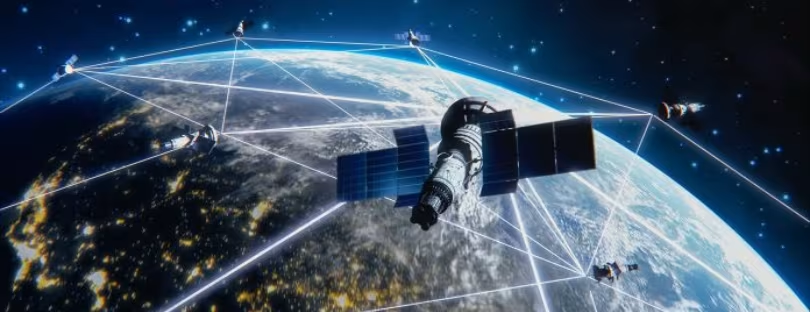
What Is the International Telecommunication Union – And Why Should You Care?
Ever stopped to wonder how your smartphone seamlessly connects to the internet while you’re lounging in a Paris café, boarding a flight in Tokyo, or navigating remote trails in Peru? Beyond mobile networks and global SIMs, there’s a lesser-known but incredibly important player making global connectivity possible: the International Telecommunication Union (ITU).
Now, don’t let the name scare you off—it might sound like a dusty, bureaucratic agency, but the ITU is actually at the heart of everything that lets your devices talk to the rest of the world.
Let’s break it down. Casual and real-talk style.
So… what exactly is the ITU?
The International Telecommunication Union, or ITU, is a specialized agency of the United Nations. It’s been around since 1865—yeah, you read that right. The ITU actually predates the UN itself.
Originally set up to coordinate international telegraphy (imagine your WhatsApp messages, but in Morse code), the ITU has evolved into the key global body that manages all things related to telecommunications and information technology.
Today, the ITU helps countries—and by extension, the world—agree on technical standards, radio spectrum allocations, satellite orbits, and telecom development projects. Basically, it ensures that when someone in Japan calls someone in Brazil, the networks involved can “understand” each other. Same goes for streaming Netflix, GPS accuracy, internet access, even cybersecurity cooperation.
Why does the ITU matter today?
Here’s the thing: digital communication is global. But every country has its own laws, tech capabilities, and priorities. Without some kind of international coordination, the entire system would be chaos.
Enter the ITU.
Whether it’s helping poor or rural countries get online, setting global 5G standards, or ensuring satellites don’t crash into each other up there—ITU keeps the digital world spinning smoothly.
Here are a few key areas where it plays a role:
1. Spectrum management
Every wireless device—from your phone and Wi-Fi router to satellites and even car sensors—needs access to radio frequencies. The ITU coordinates this internationally so you don’t get interference or disruptions across borders.
Without this, say goodbye to things like roaming or stable 4G in foreign countries.
2. Tech standards
The ITU sets global standards for how telecommunication systems operate. This ensures that your gadgets work across networks, no matter where you are. It’s why you can use the same phone whether you’re in Spain or South Korea.
Think of them as the referees making sure the whole telecom game plays fair.
3. Connectivity for all
Through its ITU-D (Development) sector, the agency helps developing nations build telecom infrastructure. That could be laying fiber optic cables, building mobile towers in remote villages, or helping governments create policies for affordable internet access.
4. Cybersecurity and emergency comms
Yup, the ITU is involved in international cybersecurity talks too. It also plays a major role in coordinating emergency communications—especially in disaster situations when networks go down and people need help fast.
 Who’s in it?
Who’s in it?
The ITU has 193 member states—which is basically every country in the world. It also has over 900 sector members, which include private tech companies (think Google, Huawei, Nokia, and Microsoft); academic institutions; and regional organizations.
So, it’s not just governments talking in a vacuum—it’s also where the public and private sectors come together to shape the future of global connectivity.
What does the ITU actually do on the ground?
Here’s where it gets even more interesting.
They organize World Radiocommunication Conferences (WRC) every few years. These events are like the Olympics of global telecom coordination. Decisions made there determine, for example, how mobile operators roll out 6G in the next decade or how Elon Musk’s Starlink satellite internet will avoid crashing into other satellites.
They also run initiatives to get more women and young people into tech, support smart city projects, and push for digital inclusion across regions that still struggle with internet access.
For example, they’ve worked on:
-
Helping remote islands in the Pacific set up solar-powered internet hubs
-
Developing mobile network policies for post-conflict African nations
-
Advising on national 5G strategies
-
Collaborating on AI ethics and trustworthy data standards
All of this sounds super techy—and it is—but it’s also incredibly human. The work they do affects how real people get access to health info, education, job opportunities, or even just a WhatsApp call home.
The ITU and the future of connectivity
We’re entering a world that’s becoming more and more connected. IoT (Internet of Things) devices, smart homes, autonomous vehicles, and AI-powered health diagnostics—all of this relies on secure, stable, and universal networks.
The ITU is now tackling some of the biggest digital questions of our time:
-
How do we bridge the digital divide in underserved areas?
-
What does ethical AI look like?
-
Who controls global internet infrastructure?
-
How do we ensure cybersecurity across borders?
-
What’s next after 5G—how do we manage 6G, quantum internet, or space-based networks?
They don’t have all the answers yet—but they are the platform where governments, big tech, researchers, and NGOs sit down and try to figure it out together.
Why you should care (even if you’re not in telecom)
Maybe you’re not in the telecom business. Maybe you’re just someone who loves traveling, running a digital business, or watching cat videos on YouTube. But here’s the deal:
If you rely on the internet—and who doesn’t these days?—you’re already part of this massive, behind-the-scenes ecosystem the ITU helps keep running.
And with digital rights, data privacy, roaming, and network access becoming human rights issues, the ITU is where the big discussions are happening.
Final thoughts
The International Telecommunication Union might not be a household name, but it’s one of the most important global agencies of our time. Think of it as the quiet architect behind our connected world—setting the rules, building bridges, and making sure no one is left behind.
So next time your eSIM boots up in a new country or your smartwatch syncs without a hitch, remember: someone, somewhere in a Geneva conference room (or Zoom meeting) helped make that magic possible.





 Who’s in it?
Who’s in it?



